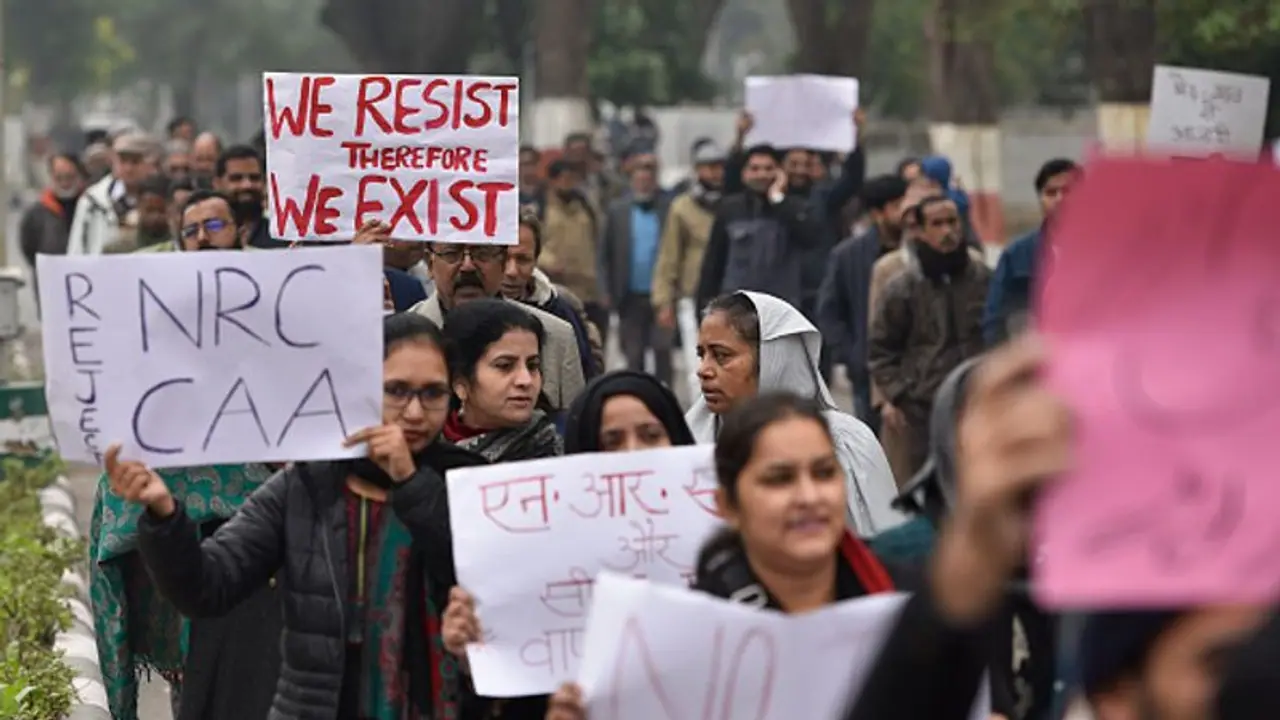In the aftermath of the violence and subsequent police firing, several ‘liberals’ spoke out stating that democracy is under threat. However, reports reveal that several radical groups had planned these protests in the name of anti CAA-NRC and wanted to make it about the Indian Muslim.
The eyes of the security agencies are on an office in the vicinity of Shaheen Bagh, Okhla, Jamia Nagar, Batla House in Delhi.
Several Islamic radicals from the area were instrumental in fanning the violence during the protests against the newly amended citizenship law. Top home ministry officials confirmed to MyNation that several radicals had come out and instigated the violence not just in Delhi, but in Uttar Pradesh as well. Most of these persons have now gone underground, the official also said.
Not democratic:
In the aftermath of the violence and subsequent police firing, several ‘liberals’ spoke out stating that democracy is under threat. However, going by the investigations, it becomes clear that there was a sustained effort to make this a radical Islamic protest rather than a democratic one.
An intelligence bureau official, who was instrumental in preparing the report, informed that the violence was pre-planned. In fact, the report also states that the violence was planned much in advance and there was a sinister plot to make the protests violent.
Several radical groups had planned these protests and wanted to make it about the Indian Muslim. The law, however, clearly states that it does not affect a single Indian Muslim and is aimed at granting citizenship only to the persecuted minorities from Afghanistan, Bangladesh and Pakistan.
The IB report further states that four days before the protests at Jamia Millia and at the Aligarh Muslim University, nearly 150 radical elements had entered Delhi and UP. The brief was to instigate violence and also turn this entire issue into a communal clash, the report also stated.
The outsider:
The investigations conducted into the violence at UP, Delhi and Mangaluru, clearly indicated the presence of outsiders. They had come in from West Bengal and Kerala and created violence. The presence of several elements from Kasargod were found during the Mangaluru violence in which two persons died.
In Uttar Pradesh and Delhi, there were radical elements from Bangaldesh, Bengal as well as Kerala, investigations have shown. In two instances, the police from UP also said that Kashmiris too were used to fan violence and instigate the local Muslims.
It was on December 13 that these radical elements had entered Delhi and UP. They were hiding at Jamia Nagar and as the protests broke out, they came on to the streets and created violence, the investigations by the Delhi Police show.
The home ministry official was asked about the need of outsiders entering these areas. There are protests going on in their respective states as well. However the plan was to enter these areas and create violence, the officer also noted.
Ensure deaths:
The report by the intelligence bureau also says that these elements wanted Muslims to die in the protests. This was to set a larger narrative that the country is against the Muslims. There was a systematic approach adopted by these persons, the report states.
This was further confirmed by four radical elements arrested in the aftermath of the violence. The police arrested Noor Hassan, Abdul Moid, Javed and Ajmal. These persons, during their interrogation, told the UP Police the plan was to instigate the Muslim youth and ensure that the protests turned violent. The idea was to ensure that the police would fire in which people would die. This would then be used as a talking point across the nation to suggest that Muslims are the target of the government, the UP Police investigation also revealed.
It was also found that elements within the PFI at the behest of a Muslim cleric had incited the youth at Kairana, Meerut and Muzzafarnagar.
The Kerala link:
Almost all police files right from UP to Delhi to Mangaluru have suggested the presence of the radical elements from Kerala.
Prior to the protests, the radical elements from Kerala had visited these places. They went from village to village spreading misinformation about the new law. These persons then distributed pamphlets. A large number of these pamphlets were found at the Kairana Eidgha.
These pamphlets were clearly inflammatory in nature and spoke about the sufferings that the Muslims would face as a result of this law and the NRC. Despite repeated assurances from the government, these persons from Kerala managed to provoke the Muslims.
The SSP of Sitapur LR Kumar explained the modus operandi of these radical elements. He said that they worked at multiple levels with a clear intention of instigating the people. He further added that books and pamphlets were distributed through which a major disinformation campaign was spread. This led to the violence, Kumar also said.
The radicals in Assam:
In Assam, the police and the intelligence found that both the naxalites as well as the radical Muslims were instrumental in fanning the violence. One Aminul Haque had been arrested by the police for planning and facilitating the violence in Assam.
It was revealed during the investigation that Haque had planned the violence and had instructed the youth to attack the Secretariat at Dispur. The police had to retort as they had planned on burning down the Secretariat.
What is more revealing is that the Assam Police have on their radar several Congress leaders who plotted along with these elements to make the protests violent. The police have found a clear link to establish the role of the Congress, Islamic radicals and the naxalites in fanning the Assam violence. Himanta Biswa Sarma, the finance minister of Assam had said that the police have evidence to establish the role of the people of the Congress and the PFI in these violent protests.
